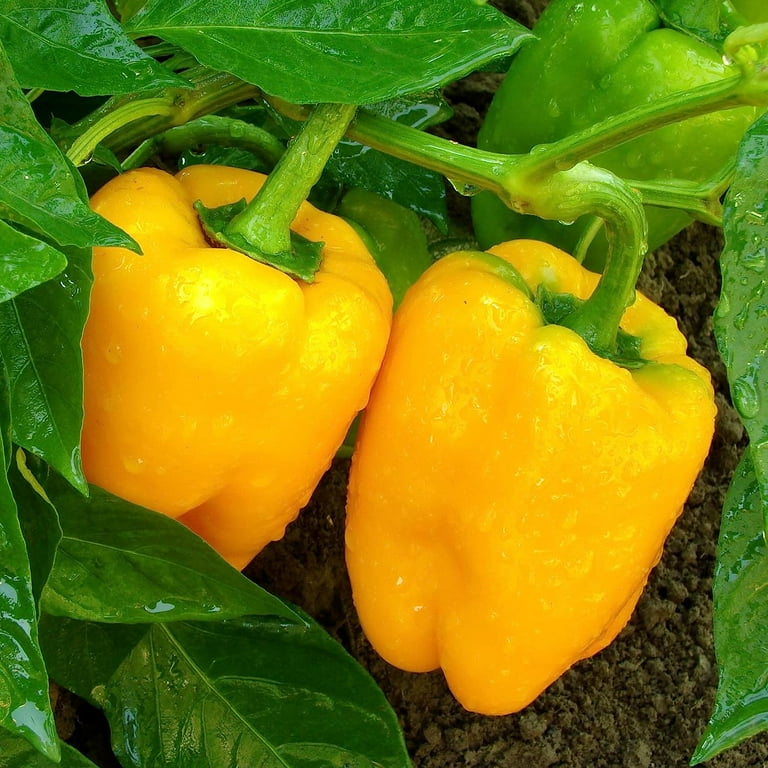Best Fertilizers for Peppers: Attain Superior Results in Your Yard
Best Fertilizers for Peppers: Attain Superior Results in Your Yard
Blog Article
Just How Plant Foods Play a Vital Duty in Growing Healthy And Balanced and Abundant Pepper Crops
Fertilizers function as the foundation of effective pepper growing, supplying a strategic approach to nourishing the soil and fostering optimal plant growth. The elaborate dance between necessary nutrients and the pepper plants' physical procedures underscores the essential duty that fertilizers play in making certain a bountiful harvest. From sustaining durable root advancement to strengthening condition resistance, the impact of fertilizers is far-reaching in the cultivation of rewarding and healthy and balanced pepper crops. Stay tuned to reveal the nuanced methods which plant foods contribute to the thriving of pepper plants and the sustainable techniques that underpin their effectiveness.
Value of Nutrient-Rich Fertilizers
The utilization of nutrient-rich fertilizers plays an essential duty in enhancing the efficiency and top quality of pepper crops in modern agricultural techniques. Potassium, phosphorus, and nitrogen are primary nutrients that are important for the development and growth of pepper plants.
Poor degrees of these nutrients can bring about stunted development, minimized returns, and vulnerability to illness (best fertilizers for peppers). Nutrient-rich plant foods provide a targeted solution to ensure that pepper plants obtain the essential components for optimum development and efficiency. Furthermore, these fertilizers help boost dirt fertility gradually, producing a sustainable environment for long-term pepper farming
Enhancing Plant Development and Advancement
To optimize plant growth and growth in pepper plants, calculated application of nutrient-rich plant foods is vital. Fertilizers play an important role in boosting the general health and wellness and productivity of pepper plants by giving them with necessary nutrients that may be lacking in the dirt. Nitrogen, phosphorus, and potassium are key macronutrients needed in large amounts by peppers for robust development. Nitrogen aids in leafed eco-friendly development and general plant vigor, phosphorus sustains root growth and flower development, while potassium contributes to condition resistance and fruit high quality.
Along with these macronutrients, micronutrients such as magnesium, zinc, and iron are also essential for the proper performance of numerous plant processes. Iron, as an example, is required for chlorophyll manufacturing, which is important for photosynthesis and general plant growth. Zinc plays an essential duty in enzyme task and hormone synthesis, affecting plant growth and advancement at a mobile degree. Magnesium is vital for the development of chlorophyll and total power transfer within the plant.

Boosting Disease Resistance With Plant Foods
By strategically incorporating targeted plant foods, farmers can strengthen the condition resistance of pepper plants, making sure ideal plant health and productivity. Fertilizers having crucial nutrients like phosphorus, potassium, and nitrogen play a vital function in strengthening pepper plants' immune systems, making them more resistant to different illness.

Optimizing Pepper Return Via Fertilizing
Utilizing a well balanced fertilizing technique is crucial to accomplishing maximum pepper return and making certain ideal crop performance. By supplying peppers with the right nutrients at the right time, farmers can dramatically improve their return capacity. Nitrogen, phosphorus, and potassium are crucial aspects for pepper development, with nitrogen aiding in fallen leave and stem advancement, phosphorus sustaining root development and blossom formation, and potassium promoting total plant health.
To maximize pepper return, it is essential to perform dirt tests to figure out existing nutrient levels and recognize any deficiencies that require to be resolved. Based on these outcomes, farmers can develop a tailored fertilizing plan that satisfies the specific requirements of their pepper plants. In addition, proper fertilization strategies such as split applications throughout the expanding period can guarantee constant nutrient accessibility for the plants.

Lasting Plant Food Practices for Peppers
In considering sustainable fertilizer methods for peppers, it is crucial to concentrate on long-term soil health and environmental stewardship combined with making best use of plant productivity. Sustainable fertilizer techniques intend to keep or boost soil fertility while minimizing adverse environmental impacts. One key strategy is using natural plant foods such as garden compost, manure, or cover plants, which not just supply necessary nutrients to the peppers yet additionally add to dirt framework and microbial task. These natural choices help build organic issue in the dirt, improving its capacity to preserve water and nutrients, therefore sustaining long-lasting crop health and resilience.
In addition, precision farming methods, such as soil screening and targeted nutrient applications, can help maximize fertilizer use, making certain that peppers obtain the nutrients they require without excess runoff right into waterways. This not just benefits the setting by decreasing pollution however also conserves expenses for farmers by minimizing waste. By embracing sustainable fertilizer techniques, pepper Look At This cultivators can safeguard the health and wellness of their crops, dirt, and bordering ecosystems for future generations.
Conclusion
To conclude, plant foods are important for cultivating abundant and healthy and balanced pepper plants. best fertilizers for peppers. They provide essential nutrients for plant growth and advancement, increase disease resistance, and maximize yield. By applying sustainable plant food methods, farmers can make certain the long-term health and wellness of their pepper plants and contribute to a much more reliable and environmentally-friendly agricultural system
The elaborate dance between crucial nutrients and the pepper plants' physiological procedures highlights the crucial role that fertilizers play in guaranteeing a plentiful harvest.To maximize plant growth and growth in pepper plants, strategic application of nutrient-rich fertilizers is vital. Plant foods play a crucial role in improving the general health and wellness and productivity of pepper plants by offering them with necessary nutrients that might be doing not have in the dirt.By purposefully including targeted plant foods, farmers can bolster the disease resistance of pepper crops, making certain optimum plant hop over to here wellness and performance. Plant foods having crucial nutrients like potassium, nitrogen, and phosphorus play a critical duty in reinforcing pepper plants' immune systems, making them a lot more durable to numerous conditions.
Report this page